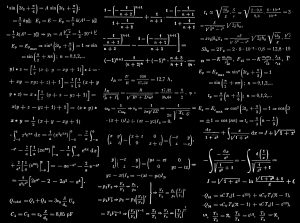What is the Right Age to start abacus learning for kids

Are you curious about the ideal age to introduce your child, this ancient tool that has helped generations of children excel in mathematics? In this article, we will explore the topic of when to begin abacus learning for kids and provide you with insights and guidance backed by research. By understanding the right age to start, you can equip your child with valuable mathematical skills and foster their cognitive development. So, let’s dive in and find out the perfect age to embark on this exciting educational journey.
What is an Abacus?
The abacus is a centuries-old mathematical tool that has been used across cultures as an aid for calculations. It consists of rows of beads on rods or wires, representing different place values. The user manipulates these beads to perform various arithmetic operations. The abacus provides a tangible representation of numbers and helps children develop a solid foundation in arithmetic.
Benefits of Early Abacus Learning
Early exposure to the abacus offers numerous benefits for children’s mathematical understanding and cognitive development. Let’s explore some of these benefits in detail:
-
Enhanced Mathematical Understanding: Learning the abacus at a young age helps children grasp fundamental math concepts, such as addition, subtraction, and multiplication, in a tangible and visual way. They develop a deep understanding of place values and number relationships, which lays a solid foundation for future mathematical learning.
-
Cognitive Skills Development: Abacus training stimulates both sides of the brain, promoting the development of cognitive skills such as memory, visualization, and analytical thinking. By using both hands to manipulate the beads, children engage their whole brain, enhancing their overall mental abilities.
-
Improved Concentration and Discipline: Regular practice with the abacus requires focus and concentration. This focused attention translates into better attention spans in other areas of study. Children learn to persevere and develop discipline as they work through complex calculations.
The Ideal Age to Start Abacus Learning
Now let’s address the question at the heart of this article: What is the right age to start abacus learning for kids? The optimal age range for children to begin learning the abacus is typically between 6 and 14 years old. Within this range, there are two key periods that offer different advantages:
-
6 to 7 Years Old: Foundation Skills
Children as young as 6 can begin learning the abacus, provided they have a basic understanding of counting and number recognition. By this age, many children can count up to 100, which is crucial for starting abacus training. Additionally, at this stage, children develop fine motor skills necessary for manipulating the beads effectively.
-
8 to 14 Years Old: Cognitive Development
During this period, children undergo significant cognitive development, making it easier for them to absorb new information and skills. Learning the abacus can enhance mental math abilities, concentration, and problem-solving skills. Moreover, enrolling children in abacus classes during this period allows them to integrate these skills with their schoolwork, potentially improving their overall academic performance.
It’s important to note that while these age ranges provide general guidelines, every child is unique. As a parent, it’s important to gauge your child’s individual abilities and readiness for this type of learning.
Tips for Abacus Learning
If you’ve decided that your child is ready to start abacus learning, here are some tips to help them get the most out of their journey:
-
Find a Reputable Abacus Program: Look for a well-established abacus program that offers age-appropriate curriculum and experienced instructors. Consider programs that incorporate both physical and digital learning materials to keep children engaged.
-
Create a Consistent Practice Schedule: Regular practice is key to mastering the abacus. Set aside dedicated time each week for your child to practice their skills. Consistency is crucial in building a strong foundation.
-
Encourage Mental Math: As children progress in their abacus training, encourage them to practice mental math alongside the physical abacus. This helps them develop the ability to perform calculations mentally, without relying solely on the physical tool.
-
Celebrate Milestones: Recognize your child’s achievements along their abacus learning journey. Celebrate when they reach significant milestones, such as mastering a new calculation method or completing a level in their program. Positive reinforcement boosts motivation and encourages continued progress.
In conclusion, the right age to start abacus learning for kids is typically between 6 and 14 years old. Early exposure to the abacus offers enhanced mathematical understanding, cognitive skills development, improved concentration, and discipline. However, it’s essential to consider your child’s individual readiness and abilities when deciding on the best time to begin.
If you’re looking for a reputable abacus program that can support your child’s mathematical growth and overall development, consider SIP Abacus. SIP Abacus India offers world-class skill development programs that aim to unlock the mental potential of children through fun learning methodologies. Through the use of the abacus and visualization techniques, SIP Abacus helps children develop strong mental math abilities, improved focus, concentration, and attention span.
Give your child the gift of mathematical excellence and cognitive development by starting their abacus learning journey at the optimal age. With the right guidance and support, they can excel in mathematics and build a solid foundation for lifelong learning.



